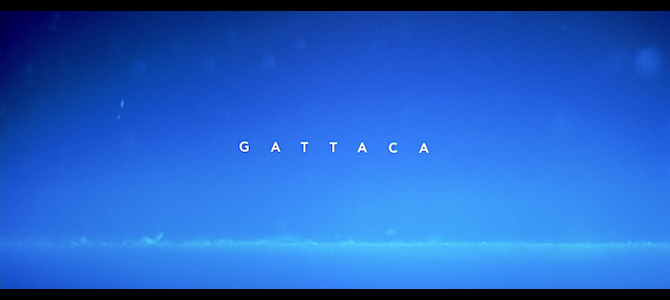When Jennifer and I went to UC Irvine a few weeks ago to show Breeders, I casually referenced the film Gattaca during the Q&A that followed the screening. Even as I was saying it, I wondered how many people in the room had seen the film, now 17 years old.
I don’t remember Gattaca being a huge box-office hit, but there was a time when many people who had even a slight interest in the issues of bioethics had seen it or were at least familiar with the general contours of the story. Since then, many more people have become aware of the importance of the taking, making, and faking life issues on which the film touches, and I realize they might not have seen the film.
So I was glad to discover recently that Gattaca is now available on Netflix. (Of course, it’s also available on all the other online outlets and on DVD as well.) Below is a brief introduction to the film we posted here on the CBC website several years ago.
Perhaps it is needless to say at this point, but if you’re looking for something to watch this weekend, I highly recommend Gattaca. Enjoy!
The story of Gattaca is set in “the not-too-distant future”, a chilling expression which infers that its author and director is certain that not only people are evolving towards the society described in his visionary film, but also that it is happening very fast. In this future, most children are genetically manipulated while still embryos. Segregation in all ways of life is not based on gender or ethnicity any more but on genetic material. Those born naturally, either because the parents could not afford or refused scientific intervention, are the new underclass.
“They used to say that a child conceived in love has a greater chance of happiness. They don’t say that anymore. I’ll never understand what possessed my mother to put her faith in God’s hands rather than those of her local geneticist. Ten fingers, ten toes, that’s all that used to matter, but not now. Now, only seconds old, the exact time and cause of my death was already known.” — Vincent from Gattaca
Like director Andrew Niccol’s other films The Truman Show and the not-so-great Simone, this film explores what it means to be human. It’s a “must see” for those interested in bioethics and a great film to discuss in any group setting.
Do you think Gattaca accurately portrays what our future will be like? In what ways does Gattaca raise issues about “The Human Future?”
Author Profile
Latest entries
 Anonymous Fathers DayOctober 11, 2018Surrogate Motherhood Does Not Create Relationships, It Tears Them Apart
Anonymous Fathers DayOctober 11, 2018Surrogate Motherhood Does Not Create Relationships, It Tears Them Apart #BigFertilitySeptember 17, 2018#BigFertility Now Available for Rent or Purchase
#BigFertilitySeptember 17, 2018#BigFertility Now Available for Rent or Purchase BlogAugust 13, 2018Newly Updated Resource
BlogAugust 13, 2018Newly Updated Resource Anonymous Fathers DayAugust 2, 2018FREE on Amazon Prime!
Anonymous Fathers DayAugust 2, 2018FREE on Amazon Prime!


